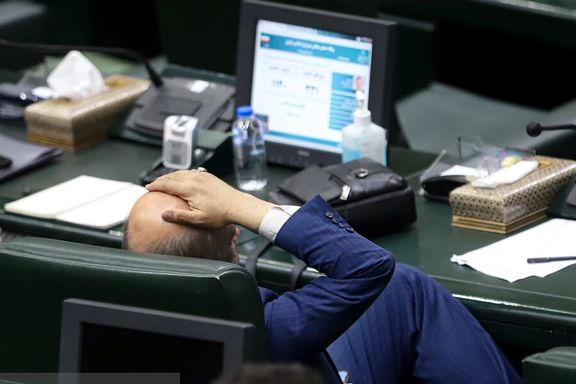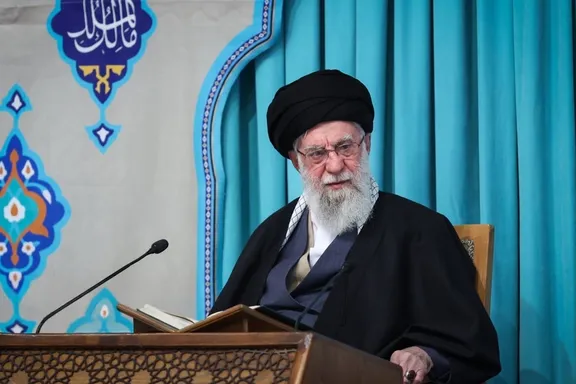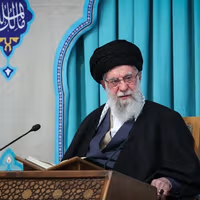The so-called snapback of UN sanctions on Iran can technically be restored automatically if any party to the Joint Comprehensive Plan of Action (JCPOA) deems Iran to be non-compliant.
But after US President Donald Trump pulled the United States out of the deal in 2018, Washington cannot itself trigger the snapback but those European countries can, giving them key leverage as the high-stakes diplomacy rumbles on.
Appearing to recognize their clout, Tehran has proposed a meeting with the E3 in either Rome or in Tehran on the Friday before the US talks are due to enter their fourth round, Reuters reported citing diplomatic sources.
An Iranian official cited by the news agency said the E3 had yet to respond.
The initiative follows Iranian Foreign Minister Abbas Araghchi’s public offer last week to travel to Britain, France, and Germany for nuclear discussions with his counterparts. None have formally responded to his proposal yet.
French Foreign Minister Jean-Noel Barrot on Monday warned that the E3 would not hesitate to trigger the snapback clause if Iran’s nuclear escalation was deemed a threat to European security.
“Iran is on the verge of acquiring nuclear weapons,” Barrot told reporters. “There is no military solution to the Iranian nuclear problem. There is a diplomatic path to achieve it, but it is a narrow road.”
Barrot added that the E3 remains in close contact with US Secretary of State Marco Rubio on the issue, who said before the US-Iran talks began this year that Trump sought the snapback of sanctions.
Tehran faces tight deadline before JCPOA sunset
The three powers are currently negotiating with Iran about future steps to salvage the agreement, and they last met in January in Geneva.
In March, the E3 issued a joint statement expressing concerns over Iran's nuclear activities, including unprecedented enrichment levels, advanced centrifuge deployment, lack of transparency and threats to non-proliferation.
With UN Security Council Resolution 2231—which enshrined the JCPOA—set to expire in October 2025, Iran has a narrow window to persuade the countries not to trigger the sanctions.
Tehran has warned that it may withdraw from the Nuclear Non-Proliferation Treaty (NPT) in retaliation if the sanctions are triggered.
As with North Korea in 2003, leaving the NPT would lift Iran’s legal obligation to remain a non-nuclear weapons state and allow it to end IAEA inspections and monitoring entirely.
Such a move would escalate tensions dramatically, raising the risk of preemptive military action by Israel or the United States and potentially sparking a regional arms race if countries like Saudi Arabia seek to develop their own nuclear programs.
How the snapback mechanism works
Under UN Security Council Resolution 2231, any JCPOA participant—the E3, Russia, China or the United States —could file a non-compliance complaint with the UN Security Council.
The other participants in the JCPOA have argued that the United States can no longer enforce the snapback mechanism because it withdrew from it in 2018.
If no resolution is adopted to continue sanctions relief within 30 days, all previous UN sanctions are automatically reimposed, including cargo inspections on Iranian shipments, Reinstated arms embargoes and restrictions on missile-related technologies.
This automatic snapback process cannot be vetoed—even by permanent members like Russia or China, which have boosted ties with Iran in recent years and whose relationship with the West is increasingly adversarial.
Although both countries may oppose the move politically, they lack the power to stop it once initiated.
To avert snapback, the Council must pass a resolution during the 30-day review period to continue sanctions relief. But any permanent member can veto it—meaning if the US or E3 object, the resolution will fail, and sanctions will snap back by default.









